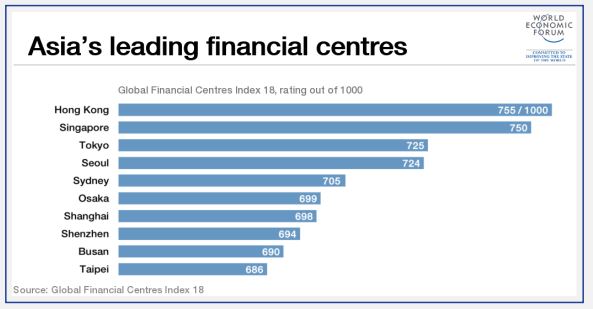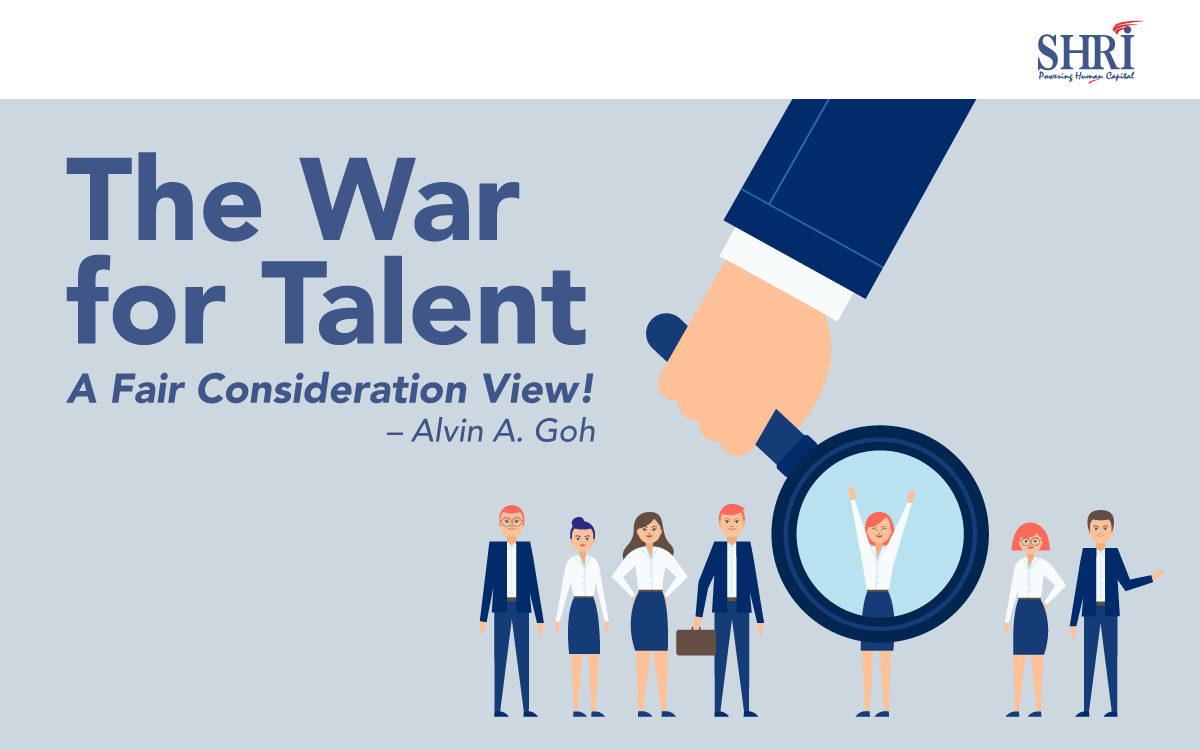The media has been abuzz about the recent increase in salaries for Employment Pass (EP) and S Pass (SP) applications and renewals. The question many are asking is what will be the possible impact for companies and the workforce composition here in Singapore? What has brought us to this stage that it needed a global pandemic to give rise to this issue? From what I hear from the ground, the HR community seems divided, and everyone has a different point of view. Be it right or wrong, justified or unjustified, a balance needs to be found—a balance based on economic needs whilst taking care of our citizens and their livelihoods.
Fair Consideration Framework
Singapore’s Fair Consideration Framework took effect on 1 August 2014 and subsequently, a watchlist of companies that were suspected of having discriminatory hiring practice was introduced in 2016. These companies that were placed on the watchlist had an exceptionally high share of foreign PMETs compared to industry peers or a high concentration of PMETs from a single nationality. To be fair to the Ministry of Manpower, a total of 3,200 employment passes were either rejected or withdrawn. However, the question remains, is it sufficient to ensure that organisations that operate here in Singapore go about ensuring that they continuously look at building a Singaporean core in their workplace?
Grooming Singaporeans
Singapore is a meritocratic society with a diverse workforce in terms of ethnicity, religion,age and gender. We have well thought out policies and best practices available to many organisations, such as TAFEP’s guidance on fair employment practices where employers should look towards relevant and objective selection criteria. The theme of providing opportunities for all Singaporeans became a major focus of the Government’s agenda, when we launched a national conversation on the country’s future direction, called Our Singapore Conversation, in 2012. Again, what has been done over the last 8 years to rectify this so-called imbalance? What must the HR community do to ensure that we abide by a merit-based talent acquisition strategy? The past and current work that we have done in upskilling, reskilling and reframing our talent; has it been sufficient and importantly, impactful? We cannot expect to be grooming our talents with programmes that are outdated. A conscientious effort is needed to look beyond developing strengths and weaknesses. We also need to take into account new skills that are needed for the future workforce, programmes that look into building higher analytical and conceptual thinking skills, the use of big data and making sense of how data can translate into management decisions, policies, and strategies
As a talking point – Human Capital in our Financial Sector
In 2015, the world economic forum rated Singapore just a mere five points behind Hong Kong in their Global Financial Survey Index. Looking at this survey, Singapore has been on a change and transformation pathway wanting to claim the top spot as the region’s financial hub for the last 10 over the years, and we did surpass Hong Kong a few times in the past few
years.

Based on the survey criteria, a general Human Capital index is one of the aspects that contributed to this survey https://globalfinancialcentres.net/explore/. Yet, what we found is that in Hong Kong, the population of expats are 4.6% of the total population, of which, 3%are corporate transferees, and of these, 45% are in the financial sector https://www.go-globe.hk/hong-kong-expats/. Whereas in Singapore, 64% of the companies that were placed on the watchlist are from financial and professional services sectors. They include banks, fund managers and management consulting firms.
The message here is not about Singaporeans versus Foreign Talent. The crux here is, if we have been on a change and transformation pathway for the last 10 over years wanting to be a powerhouse in the financial industry, all things being equal, shouldn’t the development of local talent here in Singapore follow the same posturing? Talent development is key to building a viable and sustainable local workforce. Building a Singaporean core is necessary
as local talents be it here in Singapore or other countries are the foundation of any organisation. We have pulled out all barriers, set aside funding for training and development, put together a comprehensive body of competencies, ensure that funded training programmes follow a robust skills framework, it would be silly of us not to capitalise on these programmes to develop our talent. I’m sure we have spent a considerable sum of money in developing our local talents for the financial sector, as such, to say that we cannot find capable local talents seem out of whack, or is there more to it?
A suggested thought process to aid HR Professionals when hiring
Quality over Quantity, I cannot agree more and perhaps, using this thought process to drill down further. We should look at the following parameters on what defines the quality of talent and use it as a guide to compare the threshold and differentiated levels for development and selection of talent. The world of competencies have been around for decades, and there have been significant research and various models that one can easily learn and follow. To drill down, perhaps organisations can look into the following
competencies in a broad sense:
- Universal Competencies
- Leadership Competencies
- Unique Competencies
Universal competencies look at what all employees should and must have and is an extension of the values of the organisation. For example, being customer-centric, having teamwork, effective communication, responding with sensitivity and compassion, being able to work with ambiguity etc. General behaviours that are observable and can be trained and developed. Skillsets that are lasting and forms the fabric of the organisation.
Leadership competencies, on the other hand, are skills and abilities that are to be performed in varying roles and requires experience to recognise the situation so that an appropriate level of intervention is called. The laundry list of what entails leadership competencies are aplenty, and one can simply go google and read from the various leadership gurus. Leadership development is not going to happen overnight just because we have sent a High Potential (HIPO) to some top tier leadership school or have assigned an executive coach. It takes time and necessary exposure for one to develop the necessary skillsets. The opportunity to practise, to learn, to lead and to be coached – the whole ecosystem needs to come together to develop a leader.
Unique competencies are the competencies that can be classified as specialised abilities or knowledge within a specific role or job. Knowledge that requires in-depth awareness of a particular environment or subject matter. Thought leaders or experiences gained over an extended period.
In today’s context, there are many tools that can enable us to ascertain the variouscompetencies that one possesses. We need not rely solely on human judgement nor haveto sit through long sessions of psychological testing or behavioural interviews to ascertain the desired competencies. Evidence-based management tools are widely available in today’s HRTech world that can aid organisations in their hiring decisions. The use of analytics and movement towards evidence-based management has started and will become a key tool in the new normal.
Finally, A Personal Thought
I read with interest an article posted by Joanna Yeoh sometime back on the challenges that she had to go through in the past, and since that posting, many have come out to share similar experiences. As an afterthought, I felt that many HR professionals are left without a lifeline, though we strongly know that for all the good reasons, we need to abide by our Fair Consideration Framework, we are very much left stranded. Any contradictive recommendations to want to hire a local versus a foreigner would imply that we are ‘not team players’! As such, towing our immediate supervisor or hiring manager’s line became a corporate survival for many.
As a profession, we are all called to develop the best for our organisation, to identify talent based on the needs of our organisations and to identify new competencies that are needed to drive our organisation forward – to build a busload of qualified talent and future leaders. If we continue to fill our buses with talent through poor talent acquisition strategies or our failure to develop future talent. In that case, we are then responsible for the decaying talent pool, and I can assure you that our organisations will fail.
What got us here 10 years ago is not going to bring us in the new normal, we need to look towards building our talent today so that they can help transform our organisation and move away from the traditional brick and mortar. Corporate survival is not just about ‘towing the lines’ and being a ‘yes’ person, we need to have the moral courage to call out on unfair HR practices, to address inadequacies in our development plans and make a commitment to eliminate any form of discrimination. I urge all HR professionals out there, to look towards competency and merit-based talent acquisition strategy and if ever, a lifeline is needed, give us a buzz!
Alvin A. Goh,
Executive Director,
SHRI







